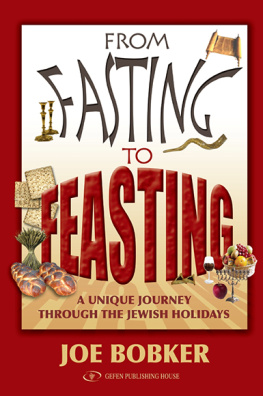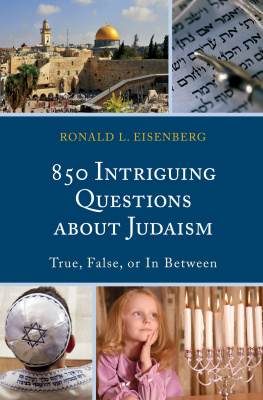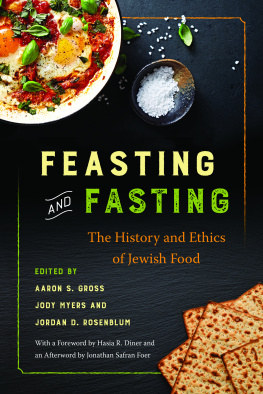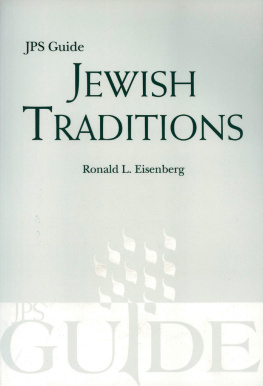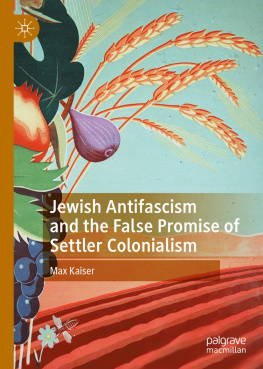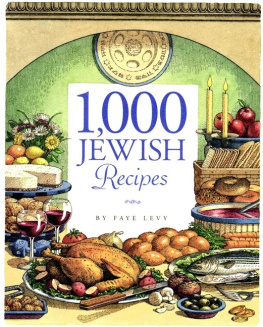Other Books by the Author
Torah with a Twist of Humor
And You Thought There Were Only Four! 400 Questions to
Make Your Seder Enlightening, Educational and Enjoyable
Pirkei Avos with a Twist of Humor
Torah News U Can Use: I Didnt Know That!
Can I Play Chess on Shabbas?
Copyright Joe Bobker
Jerusalem 2008 / 5768
All rights reserved. No part of this publication may be translated, reproduced, stored in a retrieval system or transmitted, in any form or by any means, electronic, mechanical, photocopying, recording or otherwise, without express written permission from the publishers.
Typesetting: KPS
Cover Design: S. Kim Glassman
isbn 978-965-229-378-7
1 3 5 7 9 8 6 4 2
About the Author
Joe Bobker was born in 1947 in Ulm, a displaced persons camp in Germany, to Polish Holocaust survivors Chaskel, ztl, and Ida Bobker. On May 21, 1949, the family arrived in Sydney, Australia, on board the Luciano Marnaro liner as refugees from Adolf Hitlers reign of terror. The most searing influence on his Jewishness were his parents, two simple Yidden who saw over 131 family members turned into ashes by the genocidal Nazi war machine and yet never swayed from their beliefs. Their faith was clearer than vision.
Mr. Bobker studied at the renowned Mercaz HaRav Kook Yeshiva in Kiryat Moshe, Jerusalem. Over the years he has been a popular speaker and is well known for his dozens of articles about Jews and Judaism in the 100year-old Los Angeles Jewish Times, of which he was publisher and editorin-chief. A prolific and creative writer, Bobker has covered a wide variety of Jewish subjects from a very personal, philosophical, erudite and witty perspective. Since 1980, he has lived in Los Angeles and New York with his wife Miriam, a barrister from Melbourne, Australia, herself a child of Polish Holocaust survivors.
When asked what acts as his inspiration, Joe replied, Eli, Avi, Benny, Dovi, Hadassa, Baylie, Layella, Devorah, Dalia, Toby, Chesky, Yoni, Baruch, Zevi, Mattie, Mordechai, Henny, Dovid, Shira, Asher, Gali, Daniel, and Leah my four sons, four daughters-in-law, granddaughters and grandsons [as of Chanuka 2007].
Acknowledgments
First things first.
I would like to thank my wife, Miriam, who gives new meaning to the words patience and understanding. Without her this book would still be on my shelf instead of yours.
I also thank my four sons Eli, Avi, Benny, Dovi who were, and are, a continuing inspiration to me. Without their probing questions, this book would never have got started.
I thank their Torah teachers and all the role models they found inside their academies of learning ranging from Emek, Toras Emes and YeshivaGedola in Los Angeles, to Ner Israel in Baltimore, and the Mir in Jerusalem.
I am constantly awed by my sister Chanale who, despite being cruelly deprived of her teenage years in the Holocaust, remained true and faithful to her faith.
My rabbeim from Sydney, the late and saintly Rav Gedalia Hertz, ztl, Rabbi Osher Abramson, ztl, and Rav Barzel, ztl, of blessed memories, and from Melbourne, the charismatic Rabbi Yitzhack Groner, all deserve special credit for imbuing in me a permanent yiddishkeit.
Finally, I have reserved for last the most important: my parents, by far the most single searing influence on my Jewish being. My mother and father were two Holocaust survivors from Poland, two simple Yidden who saw over 131 family members genocidally reduced to ashes yet never swayed in their belief system.
In Gods dictionary, they can be found under emuna un bitachon.
The Heavens should be both proud and appreciative that there still existed, in the doubting aftermath of a bloody Auschwitz, Jews of the caliber of my parents, Chaskel, ztl, and Ida Bobker, whose faith was clearer than sight.
Joe Bobker
Chanuka 2007
Chapter 1
Rosh Hashana
Shofar So Good
FROM JUDGMENT TO MERCY
The term Rosh Hashana is nowhere to be found in the Five Books of Moses; it is referred to as Yom Terua, the day of sounding the horn [shofar], or as Zichron Terua Mikra Kodesh, a sacred occasion commemorated with loud blasts.
It is not until the Second Temple that Rosh Hashana is referred to as Yom Hadin, the Day of Judgment, causing kabbalists to note that Dan, the name of one of the Twelve Tribes, and din, judgment, share the same Hebrew root. It is for this reason that Tishrei, the month of judgment, was paired with Dan who, upon birth, caused his mother Leah to cry out, God has judged me [danani].
It is in this month that God plays musical chairs, shifting from a constrictive throne of judgment to a more expansive throne of rachamim (from the root rechem, which means womb), which connotes mercy and clemency. This dynamic tension can be traced back to the different Names of God used during Creation, beginning with Elokim (the aspect of God associated with truth and harsh judgment) and ending with the Tetragrammaton (the four-letter name of God colloquially referred to as Hashem, whose aspect is associated with love and compassion). In order to merge these two Divine polarities, the Yom Kippur services climax with a resounding Neila cry, repeated no less than ten times, that Elokim is Hashem, a Judaic affirmation that din and rachmanus are not mutually exclusive and can coexist.
When the Rebbe of Tolna was passing through a rival Rebbes territory, his opponents chassid threw a rock at him to show him he was not welcome. Instead of being upset at this hostile reception, the Rebbe caught the stone and praised the stone throwers devotion and loyalty to his own Rebbe.
Moshe Cordovero, the sixteenth-century major Safed kabbalist, believed that such compassionate human acts had the power to make God change seats, which is why such chassidic masters as Nachman of Breslov made seeing only the good in ones fellow Jews a cornerstone of their chassidic philosophy as so poignantly expressed by Levi Yitzchak of Berditchev:
Ribbono shel Olam, Master of the world, look and see what a wonderful people are Your people Israel. They struggle to make a living. They pray and work hard, and its a strain to earn enough for their basic necessities. But why do they do it? For You! Everything they earn and do is dedicated to Your name!
What do Jews do with the little money they earn? They use it to bring up their children in the ways of Your Torah. They exert themselves to make their children Torah scholars, or at least to marry a Torah scholar. All week they struggle and strive. On Shabbas, what do they do? They banish all workday and weekday thoughts. They concern themselves only with religious affairs. Whatever fine food they can get adorns the Shabbas table, in Your honor. They invite guests to celebrate Shabbas with them, in Your name.

